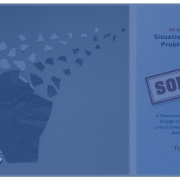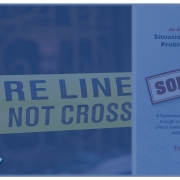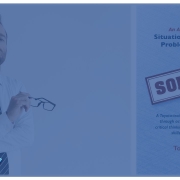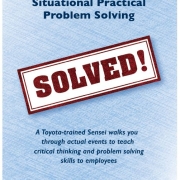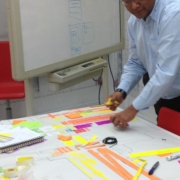Over Dependence on Memories
Case History of Five Reasons Why We Fail to Solve Problems and What We Can Do About It! — Over-Dependence on Memories
Part 5 of a 5-Part Series
The following are five reasons why we fail in problem solving.
- Making assumptions
- Over-relying on experience
- Relying on “experts”
- Coming to the problem with preconceived ideas
- Depending too much on memories
In this blog I will tackle “over-dependence on memories” and will go into more detail on the other five reasons in other blogs.
Always Remember This: Your Memories Are Faulty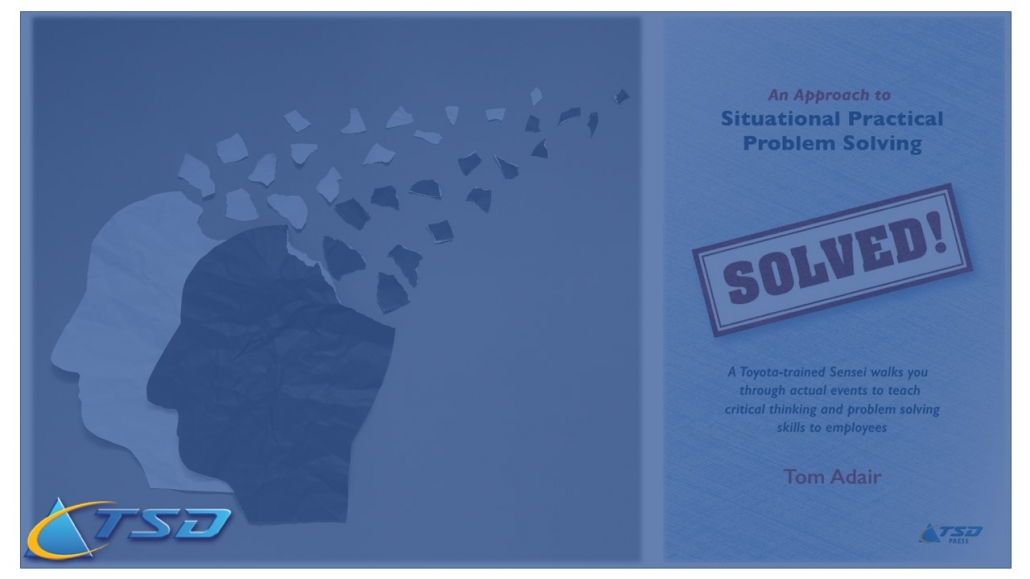
“We’re constantly changing facts and rewriting history to make things easier by making them fit in with our preferred version of events. We do it automatically. We invent memories without thinking. If we tell ourselves something happened often enough we start to believe it then we can actually remember it.”
When problem solving, we often rely on our memory of an event or issue: the remembrance of something we saw or experienced. However, there are a variety of factors that can bring into question the reliability of that memory, no matter how vivid.
- Uniqueness of the Individual – Each person’s perception is unique. Some people may focus on certain elements of an event while others do not see them at all; some people may miss important and relevant pieces of information, while others see them immediately. Each person’s memory is colored by his or her individuality.
- Time – Memory tends to deteriorate over time, altering perceptions, weakening vividness and sometimes leading to forgetfulness.
- Selective Attention – A person’s focus on a particular thing for a period of time tends to exclude his or her perception of other things in the environment perceived as less relevant, thereby effecting memory.
- Inattentional (Perceptual) Blindness – Sometimes, people fail to see something unexpected, even when it is in plain sight. An example is narrowly missing an oncoming vehicle when turning onto a deserted stretch of highway because there was no expectation of traffic at this place and time.
- Change Blindness – This is the failure to detect changes in a visual scene. An example is what you see in newspapers on the puzzle page. Two pictures shown side-by-side appear identical but one picture either has something added or deleted and you must find the differences.
- False Memory – People may incorrectly believe they saw something when in fact they didn’t see it at all. By way of example, two groups of people in a study viewed the same video of a car accident and responded to two different questionnaires describing the collision using the verbs “smashed” and “hit” respectively. When everyone was asked whether they saw broken glass on the video (when in fact there was none), the response demonstrated that the difference between whether broken glass was recalled or not heavily depended on the verb used. A larger number of participants in the “smashed” group declared there was broken glass. A false memory was created by the mere use of language and the person’s expectations.
“Remembrance of things past is not necessarily the remembrance of things as they were.”
― Marcel Proust
As you can see from the factors above, there are a number of reasons why we can’t depend solely on memory, and the real life event below illustrates this fact.
Example: Condition of Training Classrooms
I was facilitating an event in our training center with twelve training instructors. One of the things I did was list those items on a flip chart that needed improvement in the classrooms. After completing two sheets with eighteen items, I asked everyone to vote on whether or not we thought we listed everything. They all held up their hands in agreement except one instructor named David. He suggested, we go see the other rooms to be sure we have a complete list. He said, “We may be relying on our memories and we may not remember everything that is wrong in the remaining eight classrooms. We may have missed something.”
I thought to myself, we were in the worst room and I didn’t remember anything else that could be added. However, we did as he suggested and looked at the remaining rooms. Some of the instructors noticed things that others had not seen. We found torn wallpaper, a non-functioning electric outlet, whiteboards in need of repair, broken window blinds, and other things. One instructor saw something no one else noticed – dead flies in the overhead light fixtures. We laughed because we couldn’t figure out why we hadn’t seen the same things. We returned to our meeting room and added more items to our flip chart.
“Memory is truth because it has its own special kind of truth. It selects, eliminates, alters, exaggerates, minimizes, glorifies and vilifies. In the end memory creates its own reality and its own version of events. No sane human being ever trusts someone else’s version more than his own.”
― Salman Rushdie, “Midnight’s Children”
Lessons Learned
- Go See the Problem – You should go see the problem first hand and not depend on memory. The instructors and I were relying on mental images of the training center rooms and we didn’t have all the same images. Always see the problem first hand and if possible with all concerned members of your team. This way everyone sees and has a better chance of remembering the same thing. We should have done our brainstorming exercise in each room. We should have listed how many times the same item appeared in each room. This would have given us some hard facts about the scope of the problem.
- Get the Details – As the saying goes “the devil is in the details.” We all had general ideas of what the rooms looked like and had dropped from our memory some of the details. This is an example of selective attention. List the details at the actual work site and take photos (if possible) for later use if needed.
- Perception – Everyone was looking through his or her own biased mental lens of the world. Some saw dead flies in the lights while others didn’t. Be aware there is strength in everyone seeing something different and bringing attention to it. Always take others with you to observe. Look 360 degrees horizontally and vertically to gain a complete picture.
- Weakened Memory – We all suffered from weakened memory. None of us could remember completely everything we once noticed before about the rooms despite our being in each of the rooms several times a week teaching classes. Be aware of the tendency for our memories to deteriorate over time and don’t fall prey to depending on what you believe by memory alone.
“Always carry a notebook and I mean always. The short-term memory only retains information for three minutes; unless it is committed to paper you can lose an idea for ever.”
― Will Self

